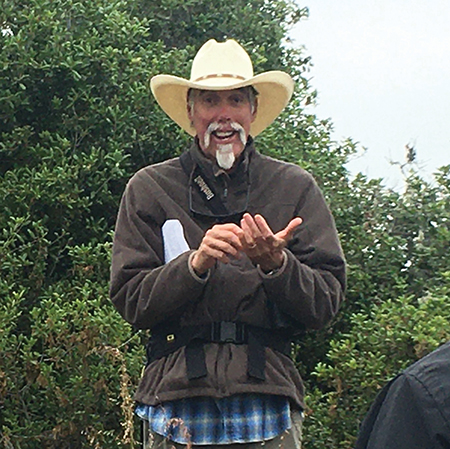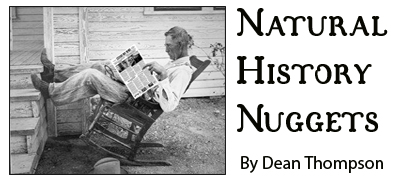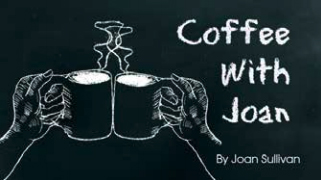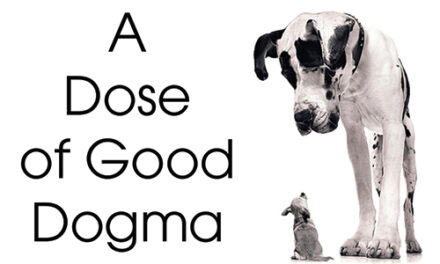By Dean Thompson
I lived in the parking lot of Morro Rock for 100 days back in the spring of 1985. It was there that I realized how useless some of the skills I honed over the years really were. It was my job as a raptor biologist to be there monitoring the endangered peregrine falcons.
That year was a unique opportunity because the falcons had just moved from the west side of the rock, where it was almost impossible to watch them, to the wind sheltered south side where people could drive up in their cars, sit in their lawn chairs and watch these masters of the sky.
It was late afternoon when I, and an amazing naturalist named John Schmidt, were watching the parade of gulls, pelicans and cormorants fly north by the rock when we both noticed a bird unlike all the others. We managed a look at it for maybe 15 seconds before it disappeared behind the rock. We looked at each other and discussed the bird, the flight profile, the long sharp bill, the deep wingbeats. We eliminated options, looked at the field guides and confirmed that we had just seen a Brown Booby, a rare sighting in this area.

Naturalist Dean Thompson teaching California Conservation Corps members about animals. Photo by Chris Cameron
We were proud and congratulated ourselves to have deciphered the sighting then John said, “Do you realize how economically useless these skills are to most people out there?”
So true, but both of us felt they were valuable to have.
One of the definitions from the Oxford Dictionary of a nugget is “a valuable idea or fact.” As a lifelong naturalist, I am awash with little nuggets about the natural world. Valuable? Maybe, I’ll let you readers be the judge. It’s information I have gleaned over the years of noticing things in nature and asking, “I wonder why?” then researching it. I am proud to call myself a naturalist and have been practicing the craft for almost 40 years.
What is a Naturalist? As defined by Websters’: 1. A scholar or student of natural history. Which leads to the question, what is natural history? Webster’s: “The scientific research of plants, animals, and natural phenomenon, usually leaning towards the observational rather than experimental.”
Naturalists observe nature and then attach meaning to what we have seen. Park Service folks call that interpretation.
Interpreters according to Webster’s “translate or express the sense of another language.” What is language? One definition is an organized form of communication used by a community or system. Language can consist of words, gestures, sounds, songs, expressions, and figures of speech. It can be spoken, written on paper, typed in code, etched in stone, pressed into clay, chalked in on slate or even expressed with paint on canvas or blood on hides. Just like the language found in nature.
When we see tracks pressed into the clay by a river, we’re reading the signs of the area. Discarded feathers, bits of fur, birdsongs, patterns of scat, scrapes on a branch or tree can communicate much to an experienced naturalist.
The wind rippling the water or patterns on the surface of a river can communicate information to experienced sailors, or fishermen. When outside our senses are being bombarded with stimuli from nature and we are constantly translating this language of nature into human understanding. That is the nature of naturalists.
Naturalists enjoy having this knowledge and understanding of the natural world, but many of us want to share our sense of wonder with others. For me personally, and probably for others as well, I want people to enjoy and understand the language of nature to the point where I don’t have to interpret it for them, and they become fluent in the language of nature.
Thanks to the folks at Estero Bay News, I’ll get to share some nuggets with you in the months to come. I hope you enjoy them and find them valuable.
*Note: Credit must be given to Rocky Ross, Curator and Host of The Reboot Storytelling event at Top Dog Coffee in the summer. She came up with the name Natural History Nuggets for the stories I told.
Dean Thompson is a naturalist and storyteller who has worked as an educator, and field biologist for the last 42 years, mostly in the Estero Bay area.





